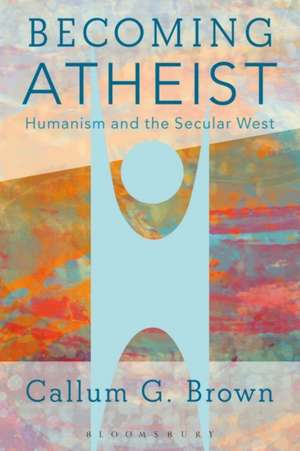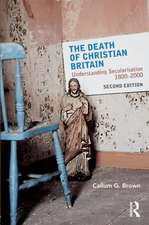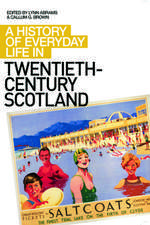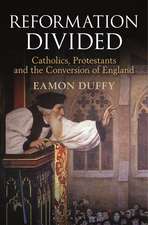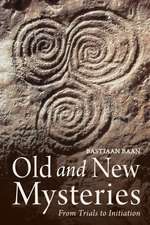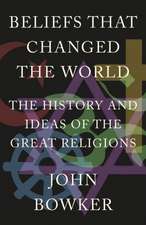Becoming Atheist: Humanism and the Secular West
Autor Callum G. Brownen Limba Engleză Paperback – 11 ian 2017
| Toate formatele și edițiile | Preț | Express |
|---|---|---|
| Paperback (1) | 179.56 lei 6-8 săpt. | |
| Bloomsbury Publishing – 11 ian 2017 | 179.56 lei 6-8 săpt. | |
| Hardback (1) | 656.81 lei 6-8 săpt. | |
| Bloomsbury Publishing – 11 ian 2017 | 656.81 lei 6-8 săpt. |
Preț: 179.56 lei
Preț vechi: 208.07 lei
-14% Nou
Puncte Express: 269
Preț estimativ în valută:
34.36€ • 35.78$ • 29.04£
34.36€ • 35.78$ • 29.04£
Carte tipărită la comandă
Livrare economică 10-24 martie
Preluare comenzi: 021 569.72.76
Specificații
ISBN-13: 9781474224529
ISBN-10: 1474224520
Pagini: 248
Dimensiuni: 156 x 234 x 14 mm
Greutate: 0.39 kg
Editura: Bloomsbury Publishing
Colecția Bloomsbury Academic
Locul publicării:London, United Kingdom
ISBN-10: 1474224520
Pagini: 248
Dimensiuni: 156 x 234 x 14 mm
Greutate: 0.39 kg
Editura: Bloomsbury Publishing
Colecția Bloomsbury Academic
Locul publicării:London, United Kingdom
Caracteristici
Represents the culmination of Callum Brown's work on secularization, building on The Death of Christian Britain (2001) and Religion and the Demographic Revolution (2012)
Notă biografică
Callum G. Brown is Professor of Late Modern European History at the University of Glasgow, UK. He is author of The Death of Christian Britain: Understanding Secularisation 1800-2000 (2nd edition 2009) and Religion and the Demographic Revolution: Women and Secularisation in Canada, UK, Ireland and USA since the 1960s (2012).
Cuprins
PrefaceAcknowledgements1. Introduction2. Narratives of Belief and Unbelief 3. The Atheist Child4. The Silent and Indifferent Atheist5. Women, Feminism and Becoming Faithless6. Men, Reason and Radicalism7. Atheism and Ethnicity8. The Humanist ConditionSourcesIndex
Recenzii
This will be a useful resource for those interested in secularism and humanism.
An ambitious book. Lively and well-written ... Brown's imaginative treatment certainly provides rich material for lively debates.
Brown's research has an important role to play, and I commend his latest book for study and discussion.
[A] readable little book.
As the number of men and women rejecting religious faith continues to grow by leaps and bounds, so too grows the need for scholarship that illuminates this historical trend, and Callum Brown's latest work is among the best out there: astute, insightful, unbiased, and informative. So thorough, so thoughtful -- this work is highly recommended. Essential reading for those interested in religion's modern decline.
Any book by Callum Brown is sure to be lively, provocative and full of new ideas. He is already internationally renowned as one of the leading historians of secularisation. This oral history of modern atheism and humanism from Vancouver to Tallinn, with long stops on the way in the USA and Britain, is further enriched by vivid detail and a warm sympathy with those whose stories he tells.
Callum Brown provides a convincing new interpretation of secularization in the West since 1945, using fascinating oral history narratives to identify key paths to atheism and humanism. He challenges a range of academic orthodoxies with compelling and original arguments. Brown demonstrates the significance of childhood rejection of religion for many lifelong atheists and the crucial intersection of feminism and family issues with the abandonment of religion for women, who have been central to secularizing trends since the 1960s. Other original arguments featured in this groundbreaking and very readable book further transform our understanding of the growing secularization of the modern West.
One of the biggest cultural shifts in the west - especially the English speaking west - in modern history has been the movement away from religion and towards humanist beliefs and values. This is a people's history as much as it is a tale of cultural and intellectual elites but until now it has been under-studied and under-told. Callum Brown's masterly narrative puts that right and his great skill as an oral historian suits him for the task better than any other.
A social and cultural historian, Brown (a specialist in late modern European history, Univ. of Glasgow, UK) has written extensively on secularism, humanism, and atheism. Part of a project that includes Religion and the Demographic Revolution: Women and Secularisation in Canada, Ireland, UK and USA since the 1960s (CH, Jun'13, 50-5537), the present book analyzes individual narratives of loss of religion and identifies patterns based on the narratives. Those studied reflect a wide range of positions about religion, from those who are anti-religion to those who are simply not concerned with religion. Brown provides a framework for understanding the positive impact of secularism in human development based on interviews with people from the US, Canada, and the UK and born between the 1920s and 1960s. The larger patterns diverge secondary to gender and ethnicity, but the whole is considered in Western Christian context. This will be a useful resource for those interested in secularism and humanism. Summing Up: Recommended. Graduate students, researchers, faculty.
An ambitious book. Lively and well-written ... Brown's imaginative treatment certainly provides rich material for lively debates.
Brown's research has an important role to play, and I commend his latest book for study and discussion.
[A] readable little book.
As the number of men and women rejecting religious faith continues to grow by leaps and bounds, so too grows the need for scholarship that illuminates this historical trend, and Callum Brown's latest work is among the best out there: astute, insightful, unbiased, and informative. So thorough, so thoughtful -- this work is highly recommended. Essential reading for those interested in religion's modern decline.
Any book by Callum Brown is sure to be lively, provocative and full of new ideas. He is already internationally renowned as one of the leading historians of secularisation. This oral history of modern atheism and humanism from Vancouver to Tallinn, with long stops on the way in the USA and Britain, is further enriched by vivid detail and a warm sympathy with those whose stories he tells.
Callum Brown provides a convincing new interpretation of secularization in the West since 1945, using fascinating oral history narratives to identify key paths to atheism and humanism. He challenges a range of academic orthodoxies with compelling and original arguments. Brown demonstrates the significance of childhood rejection of religion for many lifelong atheists and the crucial intersection of feminism and family issues with the abandonment of religion for women, who have been central to secularizing trends since the 1960s. Other original arguments featured in this groundbreaking and very readable book further transform our understanding of the growing secularization of the modern West.
One of the biggest cultural shifts in the west - especially the English speaking west - in modern history has been the movement away from religion and towards humanist beliefs and values. This is a people's history as much as it is a tale of cultural and intellectual elites but until now it has been under-studied and under-told. Callum Brown's masterly narrative puts that right and his great skill as an oral historian suits him for the task better than any other.
A social and cultural historian, Brown (a specialist in late modern European history, Univ. of Glasgow, UK) has written extensively on secularism, humanism, and atheism. Part of a project that includes Religion and the Demographic Revolution: Women and Secularisation in Canada, Ireland, UK and USA since the 1960s (CH, Jun'13, 50-5537), the present book analyzes individual narratives of loss of religion and identifies patterns based on the narratives. Those studied reflect a wide range of positions about religion, from those who are anti-religion to those who are simply not concerned with religion. Brown provides a framework for understanding the positive impact of secularism in human development based on interviews with people from the US, Canada, and the UK and born between the 1920s and 1960s. The larger patterns diverge secondary to gender and ethnicity, but the whole is considered in Western Christian context. This will be a useful resource for those interested in secularism and humanism. Summing Up: Recommended. Graduate students, researchers, faculty.
